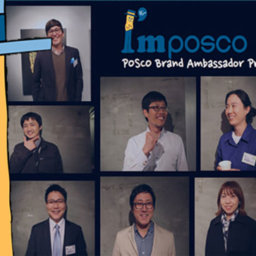The POSCO 1% Sharing Foundation became partners with UNESCO through a signing ceremony at UNESCO’s headquarters in Paris. The foundation is the first partner for UNESCO’s Project for Out-of-school Children throughout ASEAN, which starts this year.
Back in September 2016, 28 ASEAN heads of state, education ministers and representatives of the Southeast Asian Ministers of Education Organization gathered together and committed to tackling the problem of youth without regular education. The Project for Out-of-school Children in ASEAN is a follow-up to the declaration, and it’s the first project that UNESCO is carrying out this year alongside an enterprise.
The POSCO 1% Sharing Foundation is aiming to leverage the Flexible Learning Strategies (FLS) program developed by UNESCO, to provide alternative education for the children of the underprivileged, ethnic minorities and migrants in cooperation with the education ministries of individual countries.
The 3-year project will be supported by the POSCO 1% Sharing Foundation, using the donated 1 percent of members’ salaries. The project will kickstart in Thailand, where they have the highest percentage of out-of-school children in ASEAN (7.6 percent). POSCO plans to cover 2,000 children in 4 regions (Chiang Rai, Ranong, Songkhla and Rayong) where POSCO Thainox, POSCO-TCS and POSCO-TBPC are based, and expand the project to Indonesia and Myanmar.

Jeong-sik Kwak, head of the ER Office of POSCO, and UNESCO Director-General Audrey Azoulay signing the agreement.
“I hope that this partnership with a world-class steelmaker like POSCO will become a model of providing opportunities for quality education to underprivileged children and youths,” said UNESCO Director-General Audrey Azoulay. “I hope that these activities will spread throughout the world, and everyone will make concerted efforts to make sure that the notion of out-of-school children will become a thing of the past.”
At home, one of the core focus areas of the POSCO 1% Sharing Foundation is facilitating the self-reliance of future generations. Starting this year, the foundation increased the number of people eligible to receive support from the Chinchin Rainbow project to 70. The customized career project will support 70 children of migrant families such as multicultural families and North Korean defectors. Last December, it also entered into an MOU with the Children’s Self-Reliance Support Team of Korea Human Resource Development Institute for Health & Welfare to help children transition smoothly from welfare facilities and foster homes to society.
Cover photo courtesy of UNESCO.


